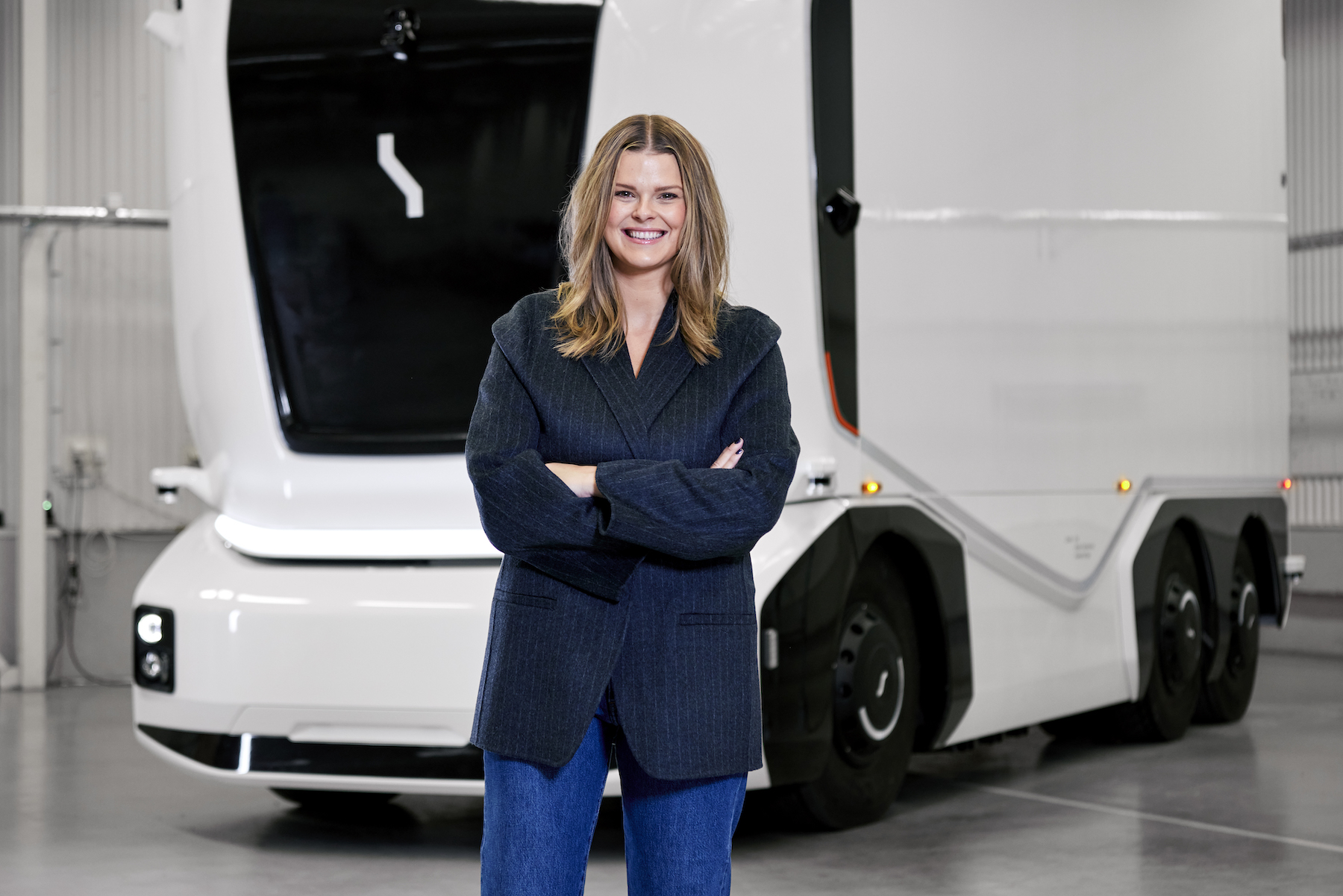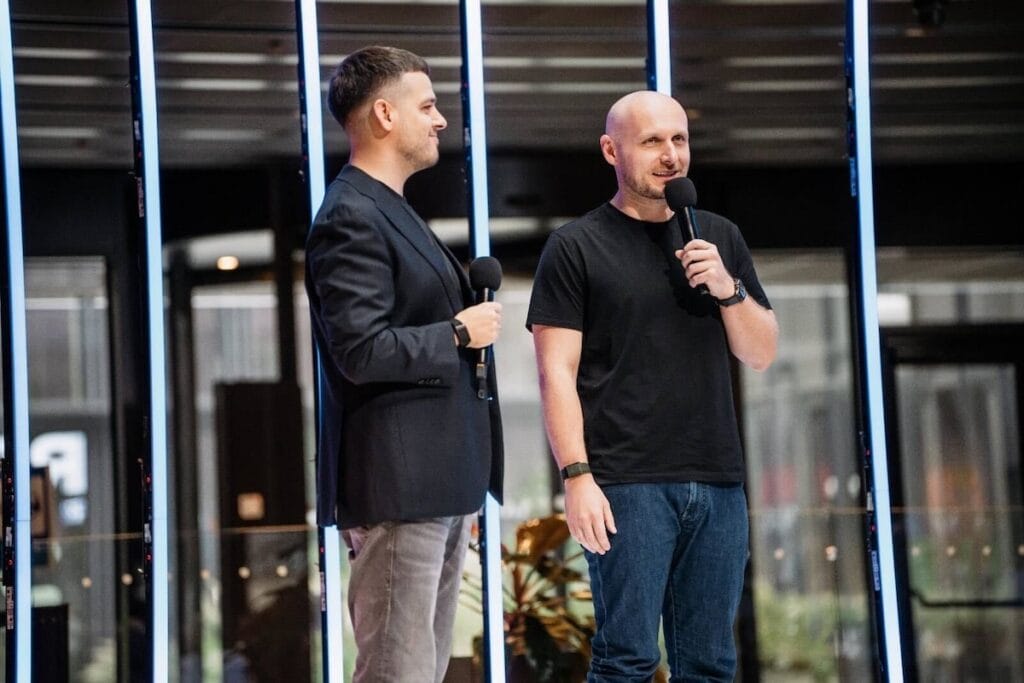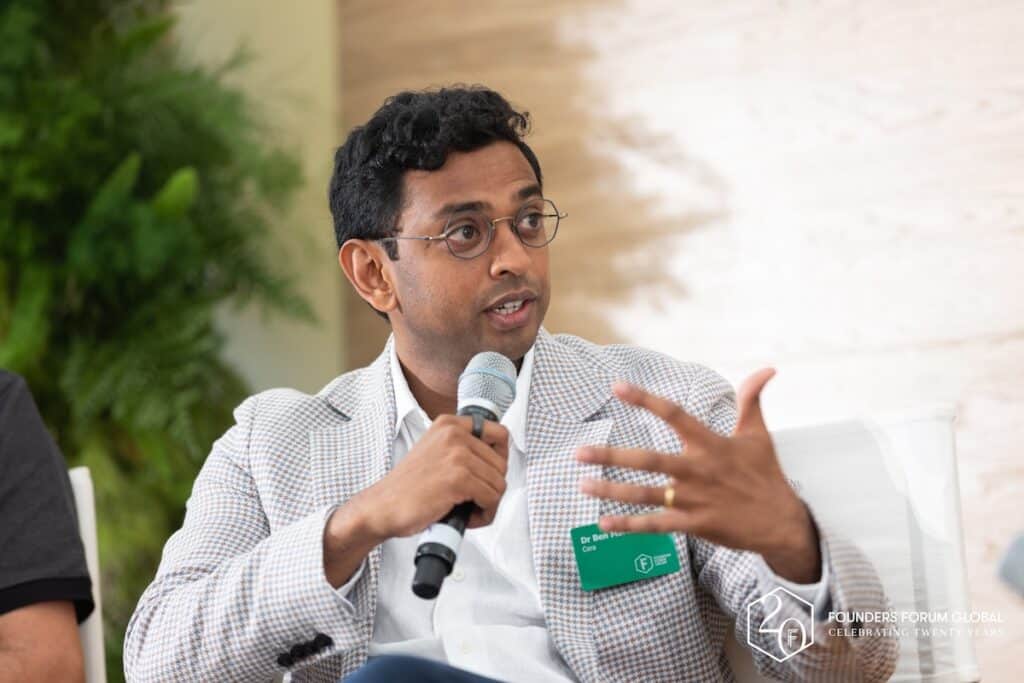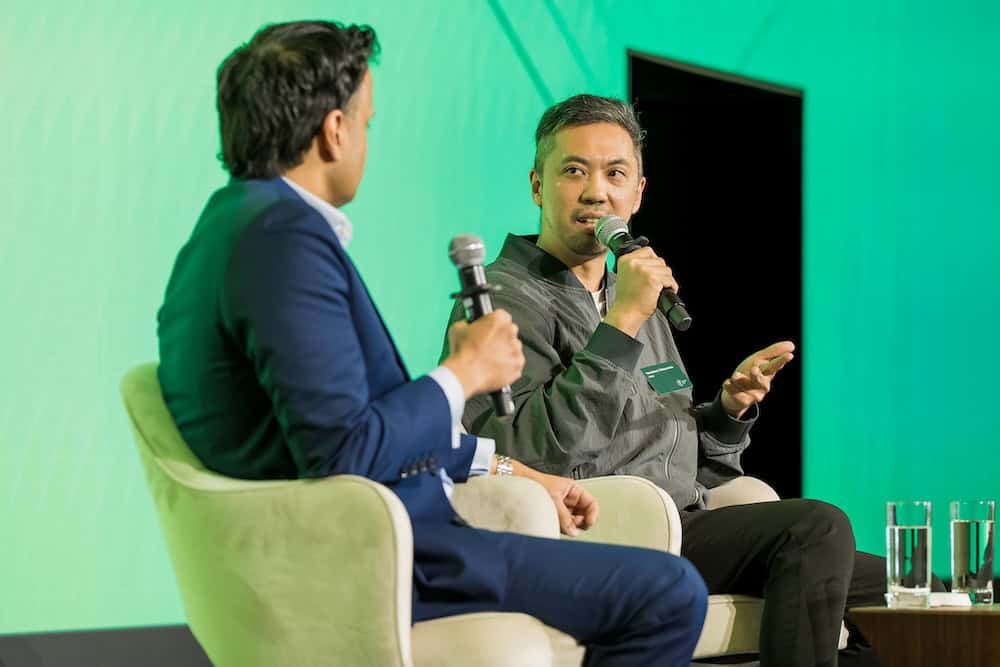Last updated on August 3, 2023
Einride was the first company to operate a self-driving, electric heavy duty vehicle on public roads. Now, Linnéa Kornehed Falck is leading the company’s global expansion. Read more in our ClimateTech 2023 report
“We’re at the beginning of a big shift in mobility and energy companies need to adapt,” says Linnéa Kornehed Falck, Founder and Deputy CEO of fast-growing freight mobility company, Einride.
When Linnéa started Einride with Robert Falck and Filip Lilja in 2016, some people thought it would never be possible to operate heavy duty electric vehicles at scale. Einride, together with its customers, now operates one of the largest fleets of heavy electric trucks in Europe.
Einride was the first company to operate a fully autonomous, electric heavy duty vehicle on public roads. In December 2022, it raised $500m in equity and debt funding to support its expansion in Europe and the US. In April 2023, Einride partnered with PepsiCo to expand into the UK.
“We often talk about generating new energy, but the distribution of energy is just as big an opportunity,” Linnéa says.
“Freight has a big advantage. It’s repetitive, structured, and planned many years in advance. Heavy duty electric vehicles have the potential to be part of the smart grid, where you’re not only charging from the network but also giving back.”
Building a New Mobility Ecosystem
Einride designs, develops, and deploys technologies for freight mobility. The company’s ecosystem includes the intelligent mobility platform, Einride Saga, electric and autonomous fleets, charging infrastructure, and connectivity networks.
Linnéa’s mission is to build freight mobility grids that re-engineer the movement of goods to unlock clean capacity at scale. In this new ecosystem, petrol stations will be replaced by charging stations, with energy coming from renewable sources.
Building the infrastructure to handle smart mobility technologies – autonomous vehicles, electric trucks with drivers, charging stations, and batteries – will take time and investment. Einride’s core focus is building the software platform for the vehicles to operate in this new mobility ecosystem, rather than owning all their trucks.
“We want to source this hardware, but not necessarily own it, so using a debt vehicle to finance the new vehicles made sense.”
As well as debt and venture capital, Linnéa and her team apply for public subsidies and permits for specific routes that are suited for electric vehicles and where they have a strong business case.
“We explain how we plan to build up infrastructure in the region, how many goods we’re going to move in this new grid, and how funding can help us get there faster.
“With our data, we also showcase how much CO2 we’re saving with our technology, which serves as a good foundation for those conversations,” she says.
Thinking Big
Taking a broader view of the mobility ecosystem has helped Einride attract over $650m in funding to date.
“When you’re starting out, it’s easy to focus everything on your product, but you need to build your brand promise and your mission. Think big, because having that big ambition is going to attract the right partners,” Linnéa advises.
“We could be just another electric haulage company that provides technology, or we can work towards a better future that serves society in the best way possible.
“There are two different narratives; the second one is how you get people to follow you.”
Download our ClimateTech 2023 report for more insights from top climate tech founders. Plus, discover the 23 European climate tech startups to watch!
 All Posts
All Posts


